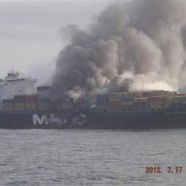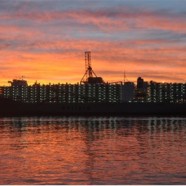MSC Flaminia – Open letter to concerning parties
Urgent message addressed to the French and British governments and to the European Commission.
Mr Jean-Marc Ayrault
Mr David Cameron
Mr Siim Kallas
Mr Janez Potocnik
Dear Sirs,
Since July 14th 2012, following a fire and two explosions the container ship MSC Flaminia is in distress, in the North Atlantic. For the time being no place of refuge has been designated to receive the vessel which in addition to her containers is carrying several thousand tonnes of bunker oil. Robin des Bois is asking the coastal States of the Atlantic and the Channel to cooperate with the aim of facilitating the progression of the MSC Flaminia into Exclusive Economic Zones and territorial waters and to ease the entrance of the convoy into a port or place of refuge. Under these circumstances the practice of ping-pong with the MSC Flaminia from one side of the Channel to the other is only increasing the risk of a shipwreck and marine pollution. For more information on the subject Robin des Bois invites you to read “A Shelter for the MSC Flaminia” published yesterday.
A shelter for the MSC Flaminia
Since July 14th 2012 the container ship MSC Flaminia is in distress in the North Atlantic. Her cargo consists of 2,876 containers of which an unknown percentage contains dangerous materials. The lack of information to the public on the vessel’s loads is all the more surprising as she set sail from Charleston in the United States of America where transit conditions and container loading have the reputation of being the strictest in the world since (9/11) September 11, 2001. One of the containers onboard the MSC Flaminia caught fire which resulted in an explosion in the middle of the vessel. The first explosion was followed by a second four days later. The fire spread to at least another two holds as it raged for 9 days. Two sailors are dead (one is missing and the other died from severe burns) and another three are injured. The container ship was abandoned by the crew. The eventual loss of containers at sea is unknown.
“Shipbreaking” # 28
Everything on ship-breaking from April16th to July 15th
56 pages of texts and illustrations; “Shipbreaking” # 28 (pdf – 3,70 Mo)
– A scandal in Portugal.
– A fast ship leaves for breaking.
– Europe, number one exporter in the world … of out of use ships
– A sheep cruise liner runs aground in Chittagong











